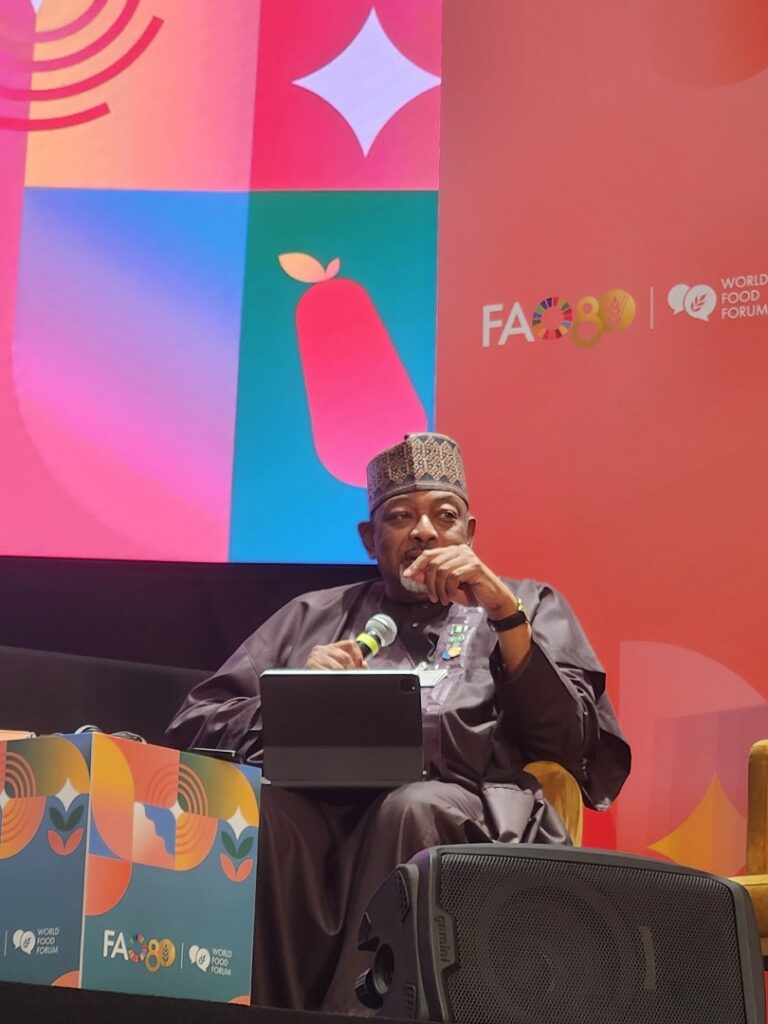From Atiku Sarki, Abuja
The Federal Government has reaffirmed its commitment to strengthening South-South and Triangular Cooperation (SSTC) as a key initiative to boost agrifood transformation, promote sustainable development, and enhance knowledge sharing among member nations.
This was contained in a statement signed by the Head of the Department of Information, Federal Ministry of Agriculture and Food Security, Mr. Ezeaja Ikemefuna, in Abuja.
Speaking during the Ministerial Dialogue on SSTC at the 2025 World Food Forum (WFF) held in Rome, Italy, and organised as part of events marking the 80th anniversary of the Food and Agriculture Organization (FAO), the Minister of Agriculture and Food Security, Senator Abubakar Kyari, said the initiative seeks to strengthen the collective bargaining power of developing countries in global forums and promote a fairer international economic system.
Kyari noted that South–South Cooperation has become an essential part of Nigeria’s agricultural development agenda, fostering innovation, inclusiveness, and sustainable growth.
He said, “Effective cooperation must be rooted in mutual respect, national ownership, and measurable outcomes. The South–South and Triangular Cooperation remains one of the most practical and cost-effective models for achieving food security and shared prosperity.”
According to him, Nigeria’s partnership with FAO and China under the SSTC framework has recorded tangible achievements, including advancements in technology transfer, farmer training, aquaculture development, and the establishment of Regional Multi-Service Extension Centres across the country.
“The lessons we continue to draw from our partnerships with China, Brazil, and other developing nations reaffirm that the Global South has the capacity, knowledge, and innovation needed to solve its own challenges if we work together in solidarity,” he added.
The minister further highlighted Nigeria’s key priorities for deepening the impact of SSTC, which include integrating its programmes into the National Agrifood Systems Transformation Agenda, establishing sustainable financing models, promoting technology and knowledge exchange in climate-smart agriculture, and strengthening regional agricultural trade within ECOWAS.
In his remarks, the Director-General of FAO, Dr. Qu Dongyu, commended Nigeria and other participating countries for their continued commitment to building inclusive and sustainable agrifood systems.
He emphasised that the next phase of South–South Cooperation must be anchored on stronger institutional frameworks and targeted investments to achieve lasting impact.
